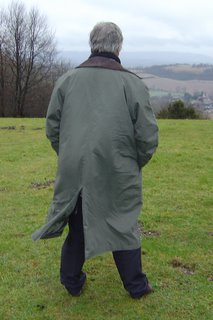So what would happen if we abolished speed limits in the UK? Would we all be scared off the fast lane of Britain’s motorways by Ferraris traveling at over 200mph? Would the M25 become a giant motor racing circuit with lap times taken at the Clacketts Lane Service Area? You really cannot tell until you’ve gone and done it.
From 1900 to 1997 the UK book trade conformed to a curious entity called the “Net Book Agreement”. As a result of this legislation books, like newspapers, were regarded as exceptional items and merited price protection. Thus a £1.95 paperback was always a £1.95 paperback whether you purchased it in a supermarket or in Harrods. This protectionism was loved and hated in equal measure, but it did have a calming effect on the industry allowing independent retail booksellers to develop their businesses, publishers to expand and flourish, and (most importantly) authors to get their books into print.
When the Net Book Agreement was abandoned the effects were partly as foreseen by the 1962 enquiry by the Restrictive Practices Court - that the number of stockholding bookshops would be reduced, and that the stocks held by bookshops would be less extensive and varied. The imminent takeover of Ottakar’s by Waterstone’s basically means that regional bookselling (outside major city centres) is now be in the hands of one company. What about W H Smith and British Bookshops/Sussex Stationers, you might ask? Well they are not stockholding booksellers – concentrating as they do on promoting 100 or so titles at special prices.
But it is the degree of “price-busting” which has most taken me by surprise. The experts thought that price-cutting would be limited to bestsellers and special promotions. They were wrong. There is scarcely a book in print that cannot be obtained (by members of the public) at a price below that at which a bookseller can acquire it from a wholesaler or publisher.
Last week the Harper Collins Award for Expanding the Market was awarded to Ted Smart, Chairman of The Book People. Ted is king of the “price-busters”, and in my measured opinion has done more to damage the High Street retail book business than any Amazon or Tesco. His skill is to suggest that his operation is that of a book club and to buy run-ons of current bestsellers direct from the publishers at cut-down prices. These are then peddled in factory canteens and through catalogues at “half bookshop price or less”. Add to Mr Smart the supermarket factor (I bought two current paperbacks at half price from Tesco last week, and Sainsbury have just appointed their first dedicated book buyer) and there is just no sense in trying to compete in any way.
But then, if the book trade has changed a lot in the last ten years, it is probably fair to predict that it will keep on changing. Spare a thought for the publishing houses and literary agents who will surely lose out to organizations like www.lulu.com and www.iuniverse.com as authors find that they can keep more control through self-publishing. Spare a thought for branches of Wottakar’s as a new generation of independent booksellers who are not governed by a central head office start to sell books properly rather than concentrating their efforts on three-for-two offers. Spare a thought for the Ranting Nappa – industriously making plans for Britain’s first Drive-Through bookshop.
